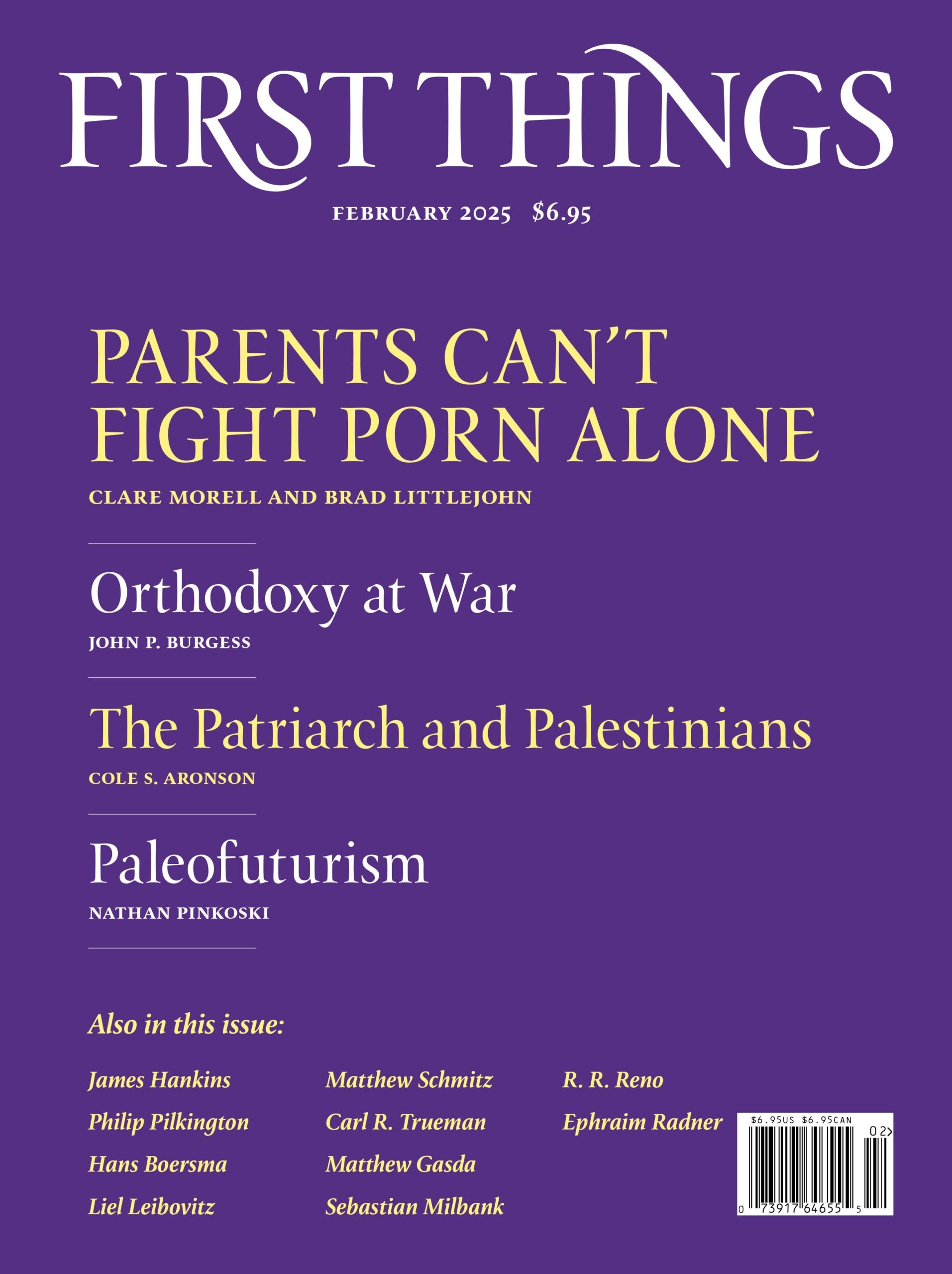
I had thought of calling this piece “Against Memory.” Hyperbolic, perhaps, but I had my reasons. I’ve started regularly waking up in the middle of the night, often for hours at a time. I’m told it’s common for people my age. I start mulling things over. Not just from yesterday, but from all my yesterdays, my life and the people in it. The night is dark, and thoughts tend to go in one direction: failures, disappointments, fears. Things I wish I could forget, and whose disappearance would cost no one but only gain some measure of peace.
Of course, memory is a tremendous good. At least, that is what we are taught to believe. And it’s mostly true. In our medicalized society, which emphasizes health and fears aging, the specter of memory loss has spurred whole health industries. It has also spawned countless bits of advice on how to maintain memory as one gets older, encouraging anxiety at every sign of our lapse into (as we imagine) an inevitable dementia. A slipped word, a forgotten name, a bungled account password. Our fears are not ill-founded: Our memory ties us to others, and we are rightly terrified of losing these fragile threads.
Still, memory can become a tremendous and depleting moral burden, all the more so because it is bound up with profound goods we seek to cherish. On a recent visit to Vilnius, Lithuania, my wife and I toured the old Jewish quarter, the fertile center of Hebrew and Yiddish culture that was once called “the Jerusalem of the North.” Little remains of this culture—destroyed in its human and material forms during World War II. Once vibrant synagogues, schools, theaters, bookstores, and shops are now gone. That past was beautiful, and it was dismantled by works of repugnant brutality and sheer ugliness. Something else has taken its place.
We were led through the clean and gleaming streets, busy with well-dressed, eager, and creative people; the old houses, carefully restored, are filled with painters, ceramicists, programmers. Through the windows of the many restaurants and cafés we could see couples leaning into each other over a quietly uttered word of love or lingering over some small regret. There is music everywhere. Our wonderful guide, neither Jewish nor even religious as far as I could tell, explained to us why he did his work: For all the new life around them, the young must remember, not just know “about,” the facts of the past. They must understand how the past is a part of who they are now.
George Santayana’s celebrated aphorism, “Those who cannot remember the past are condemned to repeat it,” is engraved in many places in Eastern Europe (including Auschwitz). The sentiment, which seems inescapable, is nonetheless not wholly persuasive. Perhaps the long concatenation of human misdeeds is less significant as an occasion of forgetfulness than as the source of the creative energy for newly contrived evils that are and must always be “one’s own.” What is remembered sometimes gets repeated. In any case, I am not sure that the young of any era are properly charged with instilling into their selves the remembered shape of their parents’ moral horrors.
I say this with hesitation. But “remembering the past” as we understand it today—the demand that we assume memory’s burden—is a relatively recent phenomenon, and it does not seem to track with growing human gentleness. The Romans had their celebrated “triumphs”—arches and the rest. Monuments have been raised across the globe, but (with rare biblical exceptions) they tended to eschew detailing the sufferings of the past, let alone the need to take responsibility for them today. By the sixteenth century, commemorations of loss began to creep into religious witness, though usually combining bitter polemic with their expressed sorrows. (For example, the Protestant poet Théodore-Agrippa d’Aubigné penned an epic about French Catholic atrocities, filled with names pulled from the wreckage, wickedness and heroism detailed.) Perhaps it was World War I that made the cherishing of suffering—“remembrance” itself—a decisive national duty. That war’s sheer size of slaughter, as well as the need to cover its horror with patriotic justifications (often halting, and now only sadly indicated by seas of poppies), set the stage for the great cultivation of memory that the Holocaust unleashed, and that has now established itself as an international pattern for every people and every ill.
It would be perverse to critique such a development and its motives. In fact, I am overwhelmed by their force. I, too, in my weak voice, willingly join with those who are convinced and who implore that we must remember, face, and refuse to make peace with sufferings endured and evils perpetrated.
But just the roaring extent of this cry uncovers memory’s incapacity. We shall never remember the names, let alone the persons, let alone their hearts, who have been buried by the cruelty of men. For all our efforts, the vast majority lie buried, and “the place thereof shall know it no more” (Ps. 103:16). And now, psychoanalytic and therapeutic habits of our era have added to the imperative of remembering—remember your childhoods, remember parental failures, sorrow, angers, the whole stream of fragile links in your past. Do not “deny” them! The weight of memory becomes grievous. Individuals are left with arms (and hearts) powerless to embrace the armies of lost persons and the vast constellations of wounded passions. Under this burden, forgetfulness, bound to the essential constraints placed on us by our human frame and history, emerges as a form of sanity, or at least as a brief moment of rest. Young people should know about this grace as well, however limited. For it is a myth that memory itself somehow saves us. “Visiting the iniquity of the fathers upon the children, and upon the children’s children” (Exod. 34:7) vies with the parental “sour grapes” that must no longer set the “children’s teeth on edge” (Ezek. 18:2–4). The conflict between our imprisonment in the past and our freedom to wreck our own lives demands some kind of respite.
Yet memory is indeed a good. In the Scriptures, forgetfulness is generally—though not always—rejected. Although God’s forgiveness is often likened to his forgetting, this is only one aspect of his work. What, after all, is the purpose of writing down and reading the histories and prophecies for all ages to hear? The Bible lays out past evils, not only of others done against Israel, but of Israel’s own doing, for eternal remembrance is a “word” that “endures forever” (Isa. 40:8). To turn away from these accounts is itself an act of wickedness and unfaithfulness. The Lamentations of Jeremiah are testament to the breadth of memory’s difficult vocation. Yet in Scripture, remembering darkness is subordinated to the memory of what is good: God’s mighty acts, God’s promises, the truth of God’s grace in creation, a goodness that shines in the midst of suffering, in forgiveness, and in redemption.
Remember the past? We can bear the burden only if we can remember God and his wide embrace of our lives. The Psalms are a book of memory in this inclusive and properly ordered sense. “I will call to mind the deeds of the LORD, Yes, I will remember the wonders of old” (Ps. 77:11). Only such inclusive memory can fuel the creativity of life, through which we move from a present, however constrained by a looming yet largely indefinable past, into a rich future.
The remembrance of God first and foremost—creating, punishing, redeeming—constitutes the utterly unique gift of Jewish and Christian cultures. It is a gift that transcends all other acts of memory, personal and collective, inevitably meager and unsatisfactory in their reach. Our actions and those of our ancestors have cut deep scars into our cherished patrimonies; persecution, destruction, and the ravages of natural life—the annihilating flood of wicked times. Our remembrances of God replace these seemingly immovable burdens with another reality. They unveil the One who does not turn his eye from the past but carries its form upon his own frame, the shoulders of the Great Rememberer himself. “Remember that Jesus Christ of the seed of David was raised from the dead according to my gospel” (2 Tim. 2:8). He it is who comes before and after, and who thus holds the forgotten in his bosom in such a way as to recreate the very meaning of their suffering and abandonment.
Even my mother and father may, and in death probably will, forget me (Isa. 49:15; Ps. 27:10). I feel this every day. Perhaps my children have their own version of this sorry sentiment of being abandoned to the solitude of memory. And so I lie awake at night, grasping at what those who gave me life have let go of and left for me to fathom and fix, the impossible task of sleeplessness and of the sleepless ages. Yet I am remembering the wrong things. God responds to Israel: “Yet will I not forget thee” (Isa. 49:15). A better place by far to linger in the night season. There is, by definition, no guard, no incapacity, no limit set against a memory such as this.
The Testament of Ann Lee Shakes with Conviction
The Shaker name looms large in America’s material history. The Metropolitan Museum of Art hosts an entire…
Dilbert’s Wager
Niall Ferguson recently discussed his conversion to Christianity. He expressed hope for a Christian revival, which he…
What Virgil Teaches America (ft. Spencer Klavan)
In this episode, Spencer A. Klavan joins R. R. Reno on The Editor’s Desk to talk about…



